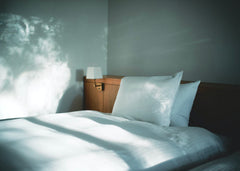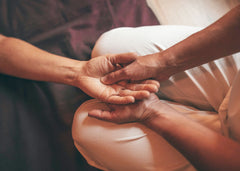The coronavirus outbreak is quickly spreading around the globe. The World Health Organization (WHO) declared the outbreak a global health emergency, and named the new coronavirus “COVID-19”. According to research from Professor Yuen Kwok Yung from the University of Hong Kong, COVID-19 is highly contagious and can be transmitted rapidly between humans. People who become infected with COVID-19 may develop flu-like symptoms, such as fever, cough, runny nose and shortness of breath.

How To Protect Yourself From The Coronavirus
As there is currently no vaccine that can prevent you from getting infected by the coronavirus (COVID-19), many of us would be concerned about how to keep ourselves safe and healthy. However, by following these steps, we can reduce the risks of getting infected or spreading the disease:
- Frequently wash your hands for at least 20 seconds with soap and water or use an alcohol-based hand sanitiser, which can kill off any viruses on your hands.
- Avoid touching your face, nose or mouth with unwashed hands.
- Cover coughs or sneezes with a tissue, then dispose the tissue in the rubbish bin.
- Wear a surgical mask when you are going out, using public transport or visiting public places.
- Stay home when you are sick.
- Regularly clean and disinfect surfaces that you frequently touch, such as your mobile phone.
- Clean your home with 1:99 diluted household bleach on a daily basis.

Boost Your Immune System With Better Sleep
Apart from taking basic steps to reduce the risk of getting infected, the most important thing you can also do is to strengthen your immune system. Did you know that getting a good night’s sleep is one of the best ways to improve immunity and protect yourself against viruses and diseases?

How Sleep Boosts Your Immune System
Studies show that people who don’t get quality sleep or sufficient sleep are more likely to get sick after being exposed to viruses. A lack of sleep also affects how fast you bounce back and recover once you do become ill.
Your immune system releases proteins called Cytokines during sleep. Levels of cytokines in your body will rise when you have an infection or inflammation, or when you're under stress. With insufficient sleep, your body makes fewer protective cytokines, and levels of infection-fighting antibodies and cells are also reduced, making yourself more susceptible to getting infected by viruses. A prolonged lack of sleep can also increase the risk of obesity, diabetes, high blood pressure or heart disease.
How Much Sleep Do You Need
The optimal amount of sleep for most adults is 7 to 9 hours of good quality, uninterrupted sleep each night. Teenagers need 8 to 10 hours of sleep. Children and newborns may need even more. If you are unable to get enough sleep, try catching up with naps. Just 30 minutes of rest during the day can help decrease stress and reinvigorate the body.

How To Sleep Better
Getting enough good quality sleep is essential. Some simple sleep practices and home remedies can help you sleep better.
- Stick to a regular sleep schedule, even on weekends.
- Practice a relaxing bedtime ritual.
- Exercise daily.
- Ensure your bedroom is at an ideal temperature with minimal sound and light disturbances (i.e. the best sleeping temperature for most adults is 15-22°C).
- Beware of hidden sleep stealers, like alcohol and caffeine.
- Turn off electronics before bed.

Related Article: Buying Guide: Choosing a Mattress in Hong Kong
How Do We Define Good Quality Sleep
According to a panel of experts in the Sleep Health journal, good quality sleep is defined as:
- Asleep for at least 85% of the total time you’re in bed
- Falling asleep within 30 minutes
- Waking up not more than once during the night
- Staying awake during the night for under 20 minutes
On the other hand, you’re likely to experience poorer sleep quality if the following applies:
- Asleep for less than 74% of the total time you’re in bed
- Taking more than 1 hour to fall asleep
- Waking up on four or more occasions each night
- Staying awake during the night for 41 minutes or more
Quality sleep should be a priority for us, despite all the stress and events that are happening around us. To stay healthy, especially during the flu season and the current coronavirus outbreak, get sufficient, good quality sleep every night.




